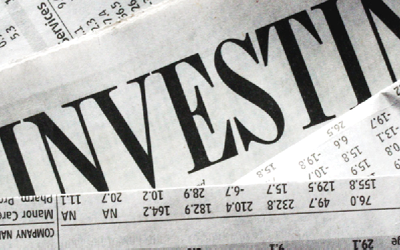At the end of 2011 a very well known Australian financial journalist and commentator declared in his subscription-only tip sheet that the share market was about to crash and by the following week he will have sold all his shares. Twelve months later the ASX200 had risen by 15%, or more than 20% if you include dividends. So why do we continue to pay attention to ‘expert’ commentators?
Along with the enormous rise in the amount of money invested in financial markets across the world there’s been an explosion in the amount of media covering it. Radio shows, newspapers, dedicated 24/7 financial TV channels, websites, blogs, journals, broker research – there’s no end to the amount of noise masquerading as information we’re inundated with.
And the old saying applies: for most people no news is good news but for the media good news is no news. They know their audience is hard wired to be more inclined to read an article with a headline screaming “the next crash is coming!” than one saying “hey relax, there’s nothing going on”.
They also play to their audience’s basic human foible of craving certainty: we want to know why things happen. So the guy on the CommSec morning report will try to sound like he knows the exact reason why the U.S. market went up by 0.2% today, because the truth – “there was no specific reason for today’s move” – just doesn’t sound too catchy.
That media monster needs to be fed; so it’s not surprising that if there are no stories they make something into a story. I remember a few years ago two high profile commentators on Bloomberg were doing their best to make the Scottish referendum sound like a potential financial disaster of international proportions; there were breathless commentators live from the London desk finding anyone with a Scottish accent willing to explain how terrible it would be if a country of five million people with GDP one-seventh the size of Australia voted yes to independence. As it turned out of course, it was barely a speed hump for the markets.
A psychology researcher and political scientist called Philip Tetlock has done some interesting work on the science of forecasts. In one study he examined more than 27,000 forecasts of academics, economists and journalists and found that on balance their rate of accuracy was little better than chance.
His later research found there are people who can make consistently better forecasts, but they think and talk in terms of probabilities; those who think in absolute terms – something will or will not happen – are far more likely to be duds. The problem is another study found that experts who are honest enough to acknowledge the future is inherently unknowable are perceived as ‘less trustworthy’.
Thus we have the expert paradox: the media wants to sound authoritative to appease our craving for certainty, so they tend to favour those commentators who are most confident and adamant in their views – those who tend to speak in absolute terms. However, it’s those same unwavering experts whose forecasts tend to perform poorly.
So it follows that Tetlock found those analysts with the highest media profiles have some of the worst track records, which is pretty scary given that more than 50% of Australian investors with their own self-managed super fund say they rely on the media for guidance with their investment decisions.
In the US there’s a thriving industry of stock picking gurus. They profess all kinds of methods and strategies and, of course, promise all kinds of returns. Between 2005 and 2012 a group called CXO assessed 6,582 forecasts for the US stock market published by 68 different gurus. The result: a success rate of 47.4% – you get better odds from tossing a coin.
If you don’t trust yourself to be able to sort the signal from the noise, the next time you read a scary headline that makes you want to do something hasty with your investments, take a breath and at the very least ask if it reflects probabilistic thinking, or absolutism.





